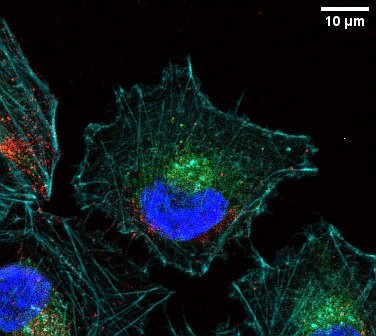Nobel Laureate Reinhard Genzel Questions AI's Role in Astronomy Discoveries

In a recent discussion, Reinhard Genzel, a Nobel Prize-winning astrophysicist affiliated with the Max Planck Institute for Extraterrestrial Physics, expressed skepticism regarding the application of artificial intelligence (AI) in astronomical research. This critique follows a series of studies published in the journal Astronomy & Astrophysics, which utilized AI to refine images of Sagittarius A*, the supermassive black hole at the center of our galaxy, located approximately 26,000 light-years away.
Genzel, who along with Andrea Ghez received the Nobel Prize in Physics in 2020 for their groundbreaking work on black holes, emphasized that while AI technologies present exciting possibilities, they should not be viewed as infallible solutions to the complex challenges faced in astrophysics. "Artificial intelligence is not a miracle cure," Genzel remarked during an interview with Live Science. He highlighted concerns about the quality of the data fed into AI models, suggesting that biases in this data could lead to distorted results, which are then misinterpreted as definitive findings.
The recent studies claim that the AI-enhanced analysis of Sagittarius A* indicates the black hole is rotating at approximately 80 to 90 percent of its maximum speed. This revelation was made possible by training a neural network on millions of synthetic simulations derived from previously discarded low-quality data, which was affected by atmospheric interference. Michael Janssen, an astrophysicist at Radboud University and a co-author of the studies, asserted that the neural network is adept at addressing the challenges posed by data collection from the Event Horizon Telescope (EHT), the same network that produced the first-ever image of a black hole in 2022.
Despite the enthusiasm surrounding AI-driven discoveries, Genzel’s caution underscores a critical perspective within the scientific community. He asserts that the potential for overhyped interpretations of AI's capabilities could mislead future research. The implications of Genzel’s concerns are significant, as they call into question the reliability of using AI in astronomical research, especially given the inherent complexities of cosmic phenomena.
The debate highlights a broader discourse in the scientific community regarding the use of AI in research across various fields. While AI technologies have demonstrated utility in processing vast amounts of data, experts urge for a balanced approach that combines AI with traditional scientific methods. Genzel and Janssen both acknowledge that further refinement of AI models and methodologies is necessary to ensure that future findings are robust and reliable.
In summary, Genzel's skepticism serves as a reminder of the need for vigilance in the application of AI in scientific research. As the field of astronomy continues to evolve with advancements in technology, the integration of AI must be approached with caution to avoid misinterpretations that could skew our understanding of the universe. The ongoing dialogue among researchers will be crucial in shaping the future of astronomical discoveries, ensuring that AI is employed as a tool that complements, rather than replaces, rigorous scientific inquiry.
Advertisement
Tags
Advertisement





